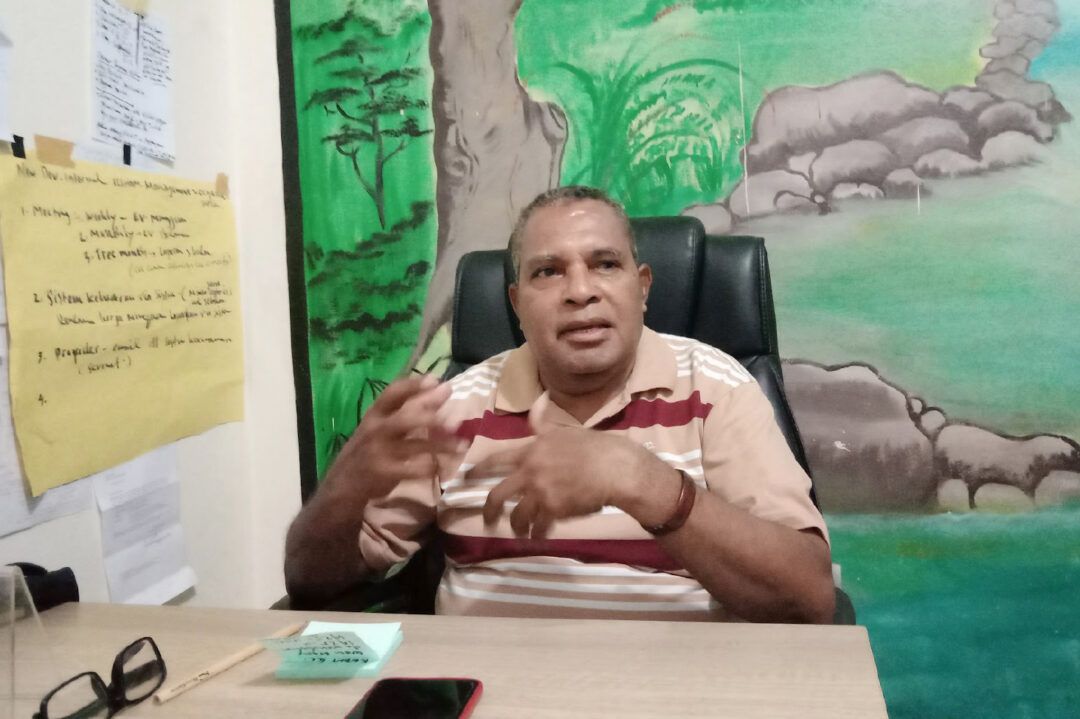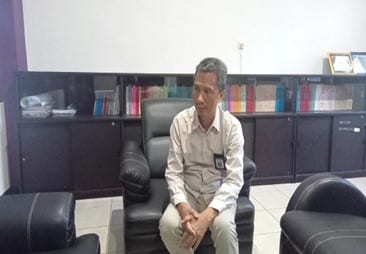Jayapura, Jubi – Papuans are often misconceived as having limited access to education. The director of the Institute for Human Rights Studies and Advocacy (ELSHAM) in Papua, Rev. Matheus Adadikam however, says the presence of “zending”, or Dutch missionaries, in Papua since 1855 underscores that Papuans have a long history of interaction with the modern world and modern education.
In an interview with Jubi on Thursday, October 19, 2023, Adadikam challenged the common belief that Papuans lacked education before the formal education system was introduced to Papua. He pointed out that, like cultures worldwide, Papua had its own education systems deeply rooted in the customs and traditions of its diverse communities.
“There are two types of education we know, formal and non-formal. Long before the arrival of missionaries, the seven customary regions of Papua had well-structured educational values embedded in their customs and cultures,” he said.
He further elaborated that education during the missionaries era did not seek to replace Papuan culture but aimed to enhance the sense of solidarity among Papuans. Missionaries introduced advanced tools and skills to assist Papuans in their daily lives, thus contributing to their communities.
“The zending era, although introducing modern elements, did not diminish the cultural richness of Papua but, in fact, enriched it,” Adadikam remarked.
Each tribe, he continued, had its own intricate kinship system and culture, which were integral to their identity and strength as communities. Despite initial challenges in interactions between Dutch missionaries and Papuans due to differences in characteristics, the Dutch managed to establish connections with the Papuans and introduced change gradually.
Interestingly, the education system at the time, known as traditional schools, adapted itself to the diverse cultures of Papuan tribes, languages, and clans. This approach, rooted in traditional values and customs, proved to be effective in helping Papuans adapt to the modern world.
Adadikam emphasized that wherever evangelization occurred, education went hand in hand with it. Education, in a broader sense, involved training in various skills, such as carpentry and gardening, often with a semi-modern approach. These skills complemented the existing patterns passed down through generations in the customs of each Papuan tribe, preserving their rich cultural heritage.
Izaak Samuel Kijne’s contribution to early Papuan education and culture
Adadikam recounts that formal education in Papua gained opportunity when Izaak Samuel Kijne, a young teacher from the Netherlands, was recruited by zending to teach in New Guinea (now Papua).
Kijne embarked on pioneering formal education in Papua, focusing solely on indigenous Papuan children from various regions, such as Biak, Serui, Numfor, Sorong, Jayapura, and Nabire.
He decided to keep Papuan children separate from non-Papuans, believing that this approach would enable them to compete and develop their cultural understanding. Kijne’s strategy aimed to facilitate the transfer of modern knowledge and science to Papuan children.
The origins of modern education in Papua can be traced to Wondama, where a village teacher education institution was established in Miei Village, Wasior Kota District. Wondama Bay became the first place to introduce a dormitory-style education system.
On October 25, 1925, Kijne along with Johan Ariks and C. M. Gossal arrived in Miei with 35 schoolchildren.
Kijne’s dormitory-based education differed significantly from the current practice in Papua, where children from various tribal backgrounds are often educated together.
Adadikam notes that Kijne employed a distinctive teaching method that incorporated outdoor activities and emphasized appreciation for nature. He created the song “Hai Tanahku Papua” (O Papua, My Land) to instill in Papuans a sense of responsibility for the environment.
The dormitory approach introduced by zending in that era proved highly beneficial for Papuans. Many students from the zending era went on to work as teachers, nurses, and even officials, making a significant impact on their communities.
In Wondama, Kijne delivered a memorable prayer on October 25, 1925, in which he declared, “On this stone, I lay the civilization of Papuans. Intellect without wisdom will lead this nation to nowhere. But I believe this nation will rise to lead itself”. (*)











